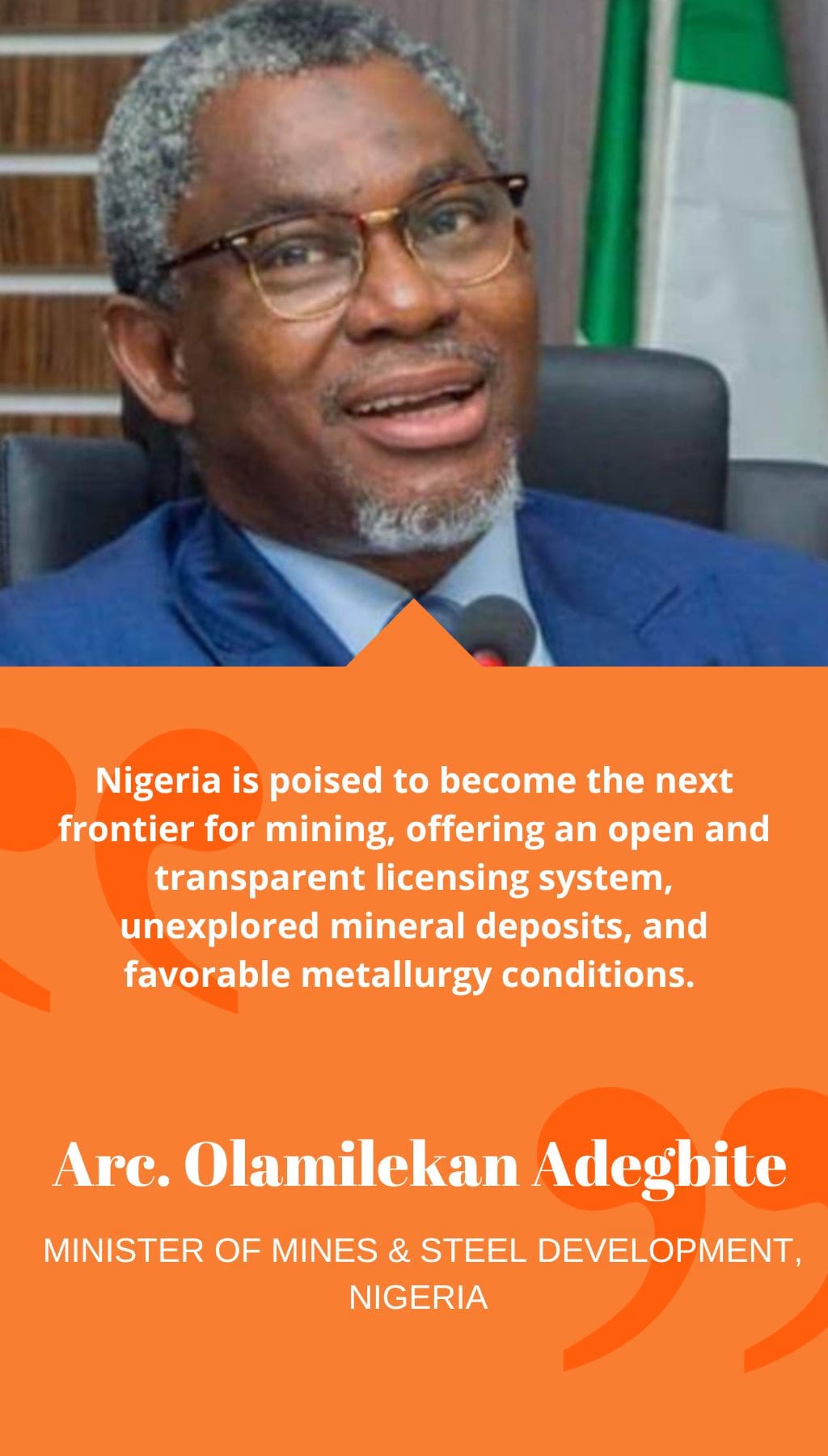
- Nigeria | 18 June 2020

What has motivated Nigeria’s focus on growing the contribution of the mining sector to the national GDP?
Before the discovery of oil in 1958, Nigeria’s primary focus was on mining, particularly coal, tin, and the export of columbite. However, the dominance of the oil sector shifted the economic focus almost entirely to petroleum, which has made the economy highly vulnerable to the volatility and unpredictability of oil prices. Recognizing the need for economic diversification, Nigeria initiated a plan to revitalize the mining sector in 2007. The goal is to reduce dependence on oil and gas and increase the mining sector’s contribution to the GDP from the current 0.6% to 3%-5% by 2025. This shift aims to not only boost revenue but also create job opportunities.
What actions have been taken to revamp the mining industry and incentivize investment?
The current administration, in office since 2015, has been proactive in developing strategic sectors such as mining and agriculture. In the mining industry, several steps have been taken to encourage investment and streamline operations. Firstly, an online cadastre system was established to manage mining titles, providing convenient access from anywhere in the world. The government has allocated extra-budgetary funding of $50 to $80 million for exploration and to stimulate interest in the sector. Fiscal incentives have also been implemented, including duty-free importation of mining equipment, a tax holiday for up to five years, and allowing foreign entities to own 100% of local companies and enjoy 100% capital allowance.
What is Nigeria’s mineral prospectivity, and what data is available regarding the country’s mineral resources?
Through exploration activities, including aeromagnetic surveys, Nigeria has identified 44 minerals within its territory. The most important minerals include gold, coal, iron ore, limestone, lead-zinc, silver, cobalt, and coltan. While deep exploration has not been completed for all 44 minerals, comprehensive data has been compiled for seven strategic minerals through the sovereign geological agency. Notably, gold discoveries have been particularly exciting, and efforts are underway to gather bankable data on potential deposits. This information has been presented at international roadshows and trade events, and it is also available online.
How do you see mining contributing to downstream beneficiation and job creation in Nigeria?
Downstream beneficiation and job creation are key focuses of the current administration. Many industries in Nigeria rely on imported raw materials, even though these resources are present within the country. To address this, a new policy aims to discourage the exportation of raw materials and promote the development of processing plants across Nigeria. By adding value to the supply chain through local processing, we can increase employment opportunities and conserve foreign exchange. The policy has been in effect since August 2019, and the government expects to see initial results by the end of this year.
How is Nigeria approaching artisanal mining?
Artisanal miners currently represent about 90% of all mining activities in Nigeria. Rather than criminalizing these miners, the government acknowledges them as indigenous Nigerians seeking subsistence means. As a first step in formalizing their operations, the government has captured their biometric data. Today, free training programs on improved mining methods are provided, along with equipment and funding support. Small-scale miners benefit from low-interest rates of 5% on bank loans, compared to the standard rates of 20% or more. By integrating artisanal workers into the formal sector, they also become subject to paying royalties, creating a mutually beneficial relationship.
What is your final message regarding mining in Nigeria?
Nigeria is poised to become the next frontier for mining, offering an open and transparent licensing system, unexplored mineral deposits, and favorable metallurgy conditions. Operating costs in Nigeria are significantly lower compared to well-established mining jurisdictions, with costs as low as $80 per ounce, compared to around $270 per ounce elsewhere. We extend an invitation to investors to seize this opportunity and take advantage of the country’s potential for mining development. Nigeria welcomes and encourages investments in the mining sector.














